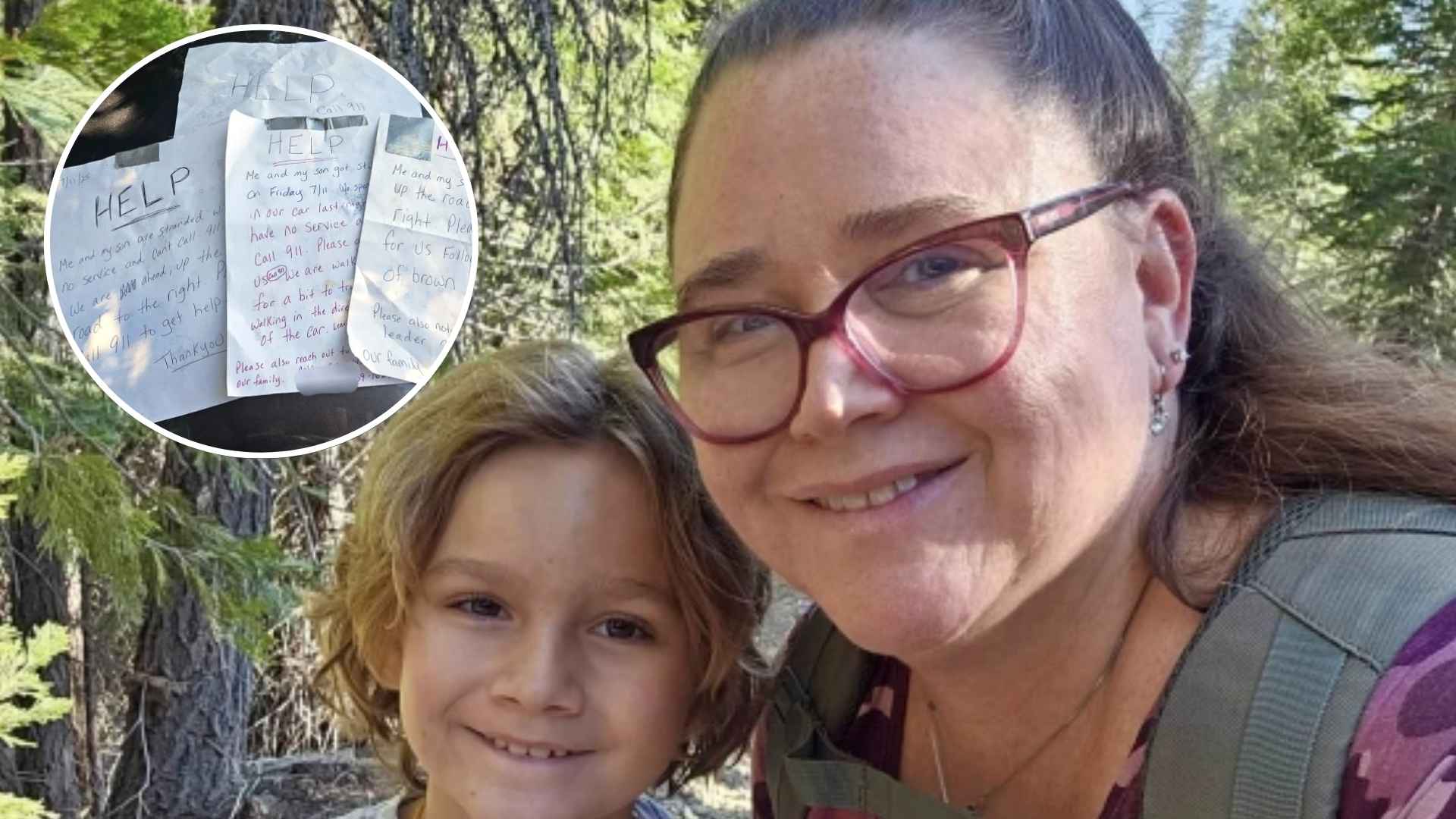Stranded without cell service, the pair relied on handwritten notes, breadcrumbs, and an SOS whistle until the U.S. Forest Service located them.
A 49‑year‑old mother and her 9‑year‑old son are back home safe after spending a nerve‑racking 24 hours lost inside northern California’s Calaveras County forest. Their story proves that simple, low‑tech tricks can still outsmart rugged terrain—and might save your family if the GPS ever goes dark.
How the mother’s handwritten notes guided rescuers through a dense Calaveras woodland maze and shaved hours off the search
After their SUV bogged down on an unmarked backroad and cell signals vanished, the mother refused to panic. She tore paper into strips and left short, clearly written notes at forks in the path: who they were, where they were heading, and the time of each message.
In case those scraps blew away, she also scattered breadcrumbs and small stones to trace their route. Meanwhile, her son sounded three piercing whistle blasts every few minutes—the internationally recognized SOS pattern. Search teams later called those cues “extremely useful,” crediting them for narrowing the search grid and bringing rescuers to the vehicle before nightfall turned colder.
Why hikers keep vanishing in California national forests despite modern navigation devices suddenly failing in remote canyons
Every year, back‑country rangers respond to dozens of lost‑hiker calls from spots such as Red Mountain Trail in Utah and the Santa Cruz Mountains. Why does it keep happening? Consider these common pitfalls:
- Overreliance on electronics: phones and GPS units can lose reception, battery, or both.
- Unfamiliar terrain: winding canyons and thick redwood groves disorient even seasoned trekkers.
- Weather surprises: sudden fog or summer storms erase landmarks.
- Poor preparation: many travelers forget paper maps or fail to tell family their route.
Still think you’d never get turned around out there? The Calaveras rescue highlights a few moves worth memorizing:
| Action | Why it worked |
|---|---|
| Leaving location notes at junctions | Gave rescuers a breadcrumb trail of time‑stamped clues |
| Marking the ground with stones and crumbs | Offered a backup path if paper blew away |
| Sounding triple‑whistle blasts | Provided a clear, audible SOS identifiable by search teams |
| Sharing trip plans with relatives in advance | Let authorities know where to start looking |
Consequently, experts urge hikers to pack a whistle, spare paper, and a basic compass alongside electronics. First, brief someone at home on your route and return time. Nevertheless, if you do get lost, stay near your vehicle, make yourself visible, and signal at regular intervals.
Low‑tech know‑how saved this mother and son long before satellites kicked back in. Could you do the same if your map app suddenly went silent?

